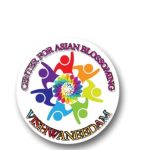-
There is an epochal need for people and scholars of Asia to come together and learn together. At present very few such spaces exist where people of Asia from diverse backgrounds and countries can come together and learn together. There
are not many think tanks and centers of conjoint meditations and reflections where scholars and leaders of Asia can come together and learn together. Keeping this epochal need and challenge, some seeking souls and seed workers are trying to
create Vishwaneedam Center for Asian Blossoming. We have registered this as a Public Trust in Pondicherry, India, and on behalf of this Trust nurture the following projects and activities in different institutions, universities in India, Asia and around the world.Some Asian countries such as India have Institutes of Advanced Studies such as the
Indian Institute of Advanced Studies, Shimla, and the National Institute of Advanced Studies, Bangalore, where scholars from within the country come. These Institutes are mainly confined within India and their parallels in Institutes such as the Institute of Advanced Studies, Princeton, Institute of Advanced Studies, Berlin and Swedish
Collegium of Advanced Studies in Social Sciences, Uppsala, have their own emphasis. In Asian Institute of Advanced Studies, we learn from their experiences as well as strive to make it a multi-dimensional open space involving not only the
participation of academic scholars but also leaders from other domains of society
such as voluntary action, business, and government. In the Asian Institute of
Advanced Studies, we aim at having scholars, activists, leaders of business, government, NGOs, and social movements together who are working on creative projects for a selected period—from three months to a year. At present in no
Institutes of Advanced Studies, one would find such a combination of fellows who come from such diverse backgrounds.There are no Institutes of Advanced Studies at the Asian level where scholars from
Asia can come together. Scholars of Asia are still bound to the Euro-American world and they meet only in the corridors of institutions and universities in this part of the
world. Now it is urgent that people and scholars of Asia must meet in the soil of Asia
and cultivate mutual learning and projects for a better Asia and the World. People of
India and China, for example, would constitute one-third of humanity and there are very little people-to-people interaction among them. Asian Institute of Advanced
Studies would be one such place where scholars from China and India as well as from Russia, Japan, Central Asia, South Asia, East Asia, and the Middle East can come together.We conceive of this Institute as a long-term project involving our sadhana and struggle. We seek to find sponsorship for the project from multiple quarters—
Foundations such as South Asia Foundation, Ford Foundation, Government and intergovernmental bodies, corporate houses, and creative educational
foundations. We try to find land for this and build a beautiful meditative campus
where fellows can live and work. We also find support for Fellowship for Asian
Blossoming for presenting fellowship to fellows. This is tied to creating fellowship for free or subsidized education for students from Asian regions in each other’s countries.At AIAS, we plan to focus on work in the field of business, social entrepreneurship, NGOs and social movements, humanities and social sciences.
Fellows stay at the Institute but there is a program of interaction with the learning public as well as universities and centers of learning in the country
Asian Forum for Social Theory is a circle of dialogue, learning, and exploration which brings scholars from different regions and countries of Asia and
around the world to address the challenges of creative theorizing on important issues in social, political, cultural, and civilizational theories. So far much of theorizing has been done within the framework of a dominant Eurocentrism. As a response to this,
there has been some nativistic ethnocentric theorizing which claims a lot on behalf of one’s tradition of thinking and practice. Asian Forum for Social Theory interrogates both Eurocentrism and nativism and seeks to create vibrant fields of dialogue and
learning which becomes then the nurturant ground for creative theorizing. Some of
us involved in this project have been organizing workshops on various aspects of this theme since 2004 beginning with a session on “Critical Theory and Asian Dialogues” at the World Congress of Sociology of in Beijing and continuing with several workshops and dialogues over the years including a session at First Asian
Philosophy Congress in Delhi in March 2010. A book, Social Theory and Asian
Dialogues: Cultivating Planetary Conversations, edited by Ananta Kumar Giri has come out from Palgrave Macmillan.Gandhi-Gopabandhu Center for Chitta Ranjan Studies and Global Learning
Chitta Ranjan Das (1923-2011) was a creative thinker and scholar from
Odisha who wrote on many aspects of human condition-philosophy, literature, sociology, psychology, among others. He had given himself to the cause of creative
education devoting himself to the educational pathways of Sri Aurobindo, Gandhi,
Tagore, Kristen Kold, and others. Das drew inspiration from Gandhi and Gopabandhu (an inspiring seeker, writer, and freedom from fighter from Odisha), among others. In this Center, we would like to do research on several aspects of Chitta Ranjan’s contributions to social criticism, poetics, ethics, political philosophy, and translation studies. We would also explore these themes from a comparative
global perspective. On the eve of his upcoming birth centenary in 2023 we would like
to collaborate with colleges and universities to open Chitta Ranjan Chair to explore these issues as well as hold workshops and seminars and publish works on the
works of Chitta Ranjan as well as related global concerns. We plan to publish on Chitta Ranjan’s contributions to the above themes during his birth centenary.Swadhyaya Sahachakra (Co-Learning Circles of Self and Mutual Studies)
Swadhyaya Sahachakra (Co-Learning Circles of Self and Mutual Studies) is an initiative of studying and learning together self, culture, societies and the world.
Friends associated with this are eager to walk and meditate with the new horizons of thinking and new movements of social and cultural change at work in our
contemporary world. We study seekers such as Sri Aurobindo, Gandhi, Chitta
Ranjan Das (a seeker and creative thinker from Odisha), and many others from around the world. We also present our own writings and reflect upon our creativity together. We also invite seekers from different fields of life to share with us their lives, visions, sadhana and struggles for creating a world of beauty, dignity and dialogues. We meet every Sunday or sometimes Wednesday.Objectives of Vishwaneedam Center for Asian Blossoming
1. To build and nurture Asian Institutes of Advanced
Study and Asian Forum for Social Theory in collaboration with different institutions and universities around the world;2. To carry out workshops, seminars, FDP and conferences on cross-cultural, philosophical, and social issues;
3. To publish Asian Journal of Social Theory;
4. To provide fellowships and scholarships to students and scholars to do study and research
5. To present Confucius-Buddha-Gandhi award for outstanding contributions to social theorizing and social sciences in Asia
Executive Co-Nurturers
Professor Ananta Kumar Giri, Madras Institute of Development Studies,
Chennai (Executive Trustee)Randhir Kumar Gautam, Assistant Professor, Gandhian School of Democracy and Socialism, ITM University Gwalior
08527029931Co-Nurturers
Professor Subhash Sharma, Director, Indus Business Academy, Bangalore
Professor John Robert Clammer, Jindal Global University, Sonepat
Dr. A. Osman Farah, Aalborg University, Denmark
Professor Boike Rehbein, Humboldt University, Berlin, Germany
Professor Soraj Hongladarom, Chulalongkorn University, Bangkok, Thailand
Dr.Gianluigi Segalerba , Eminent philosopher , Italy
Dr. Pratima Soni , Faculty of Law , India








